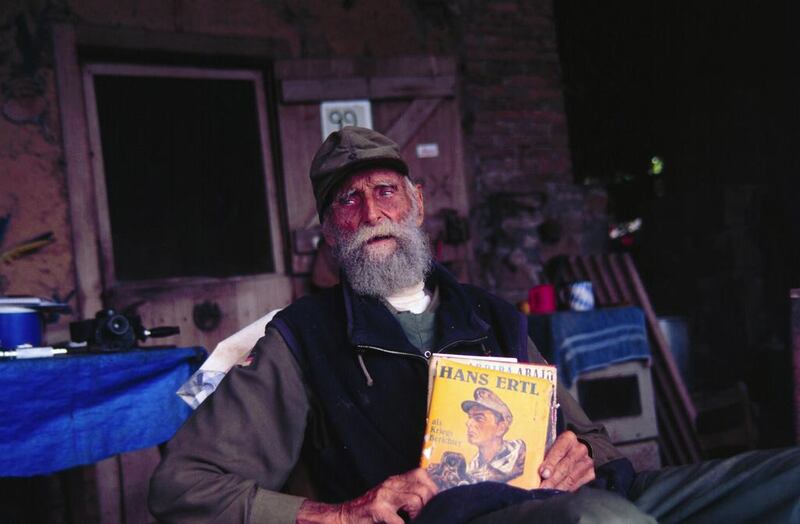Hans Ertl was a German cinematographer who made his name working with Leni Riefenstahl on the propaganda films she made for Hitler in the 1930s. Olympia (1938), for example, their documentary about the 1936 Berlin Olympic Games, once famous for showcasing then-groundbreaking cinematic technique, is now infamous for its glorification of Aryan athletic supremacy.
Such was Ertl’s reputation with the Nazi elite, when war broke out in 1939 he was conscripted into the military as a war correspondent, famously earning the title of “Rommel’s photographer” for his documentation of the field marshal’s North Africa campaign.
After the war, with the country and the party he’d spent his career lionising now defeated, Ertl was banned from working in Germany. Along with many of his contemporaries, he fled to South America to begin a new life. He and his family – his wife, and their three daughters: Monika, Heidi and Trixi – arrived in La Paz in 1952.
He shot two final documentaries in Bolivia in the 1950s before his career was brought to an abrupt end in 1961 when mid-filming a new project, he lost his footage in an accident.
Retiring to an isolated farm, he stepped back from the limelight only for his eldest daughter Monika to take centre stage instead. In 1969 she joined the guerrillas fighting in Che Guevara’s National Liberation Army of Bolivia, soon becoming the most wanted woman in Latin America after she assassinated Toto Quintanilla, the man supposedly responsible for cutting off Guevara’s hands after his execution. She was hunted down and killed in 1973.
Faced with such riches to mine, a less daring writer would surely produce a doorstop of a family saga. Rodrigo Hasbún, however, boldly strips his narrative right back, and, in a writerly intrepidness that matches the adventurous spirit of both Ertl and Monika, constructs a haunting account of the family’s Bolivian years, the key to which is an elegant sparseness.
Rather than retelling the facts of their extraordinary public history, Hasbún is concerned with an intimate examination of the slow collapse of the family as experienced from within: a sister who became a “mystery”, a father who was always a “phantom”.
The story of which he pieces together through vignette-like chapters: a series of episodic moments spanning a period of more than 20 years and narrated from multiple perspectives.
Slight, mercurial and more than a little strange, Affections is like a rare bird of paradise; the kind of creature one imagines Ertl and his companions encountering during the expedition deep into the Amazon jungle with which Hasbún begins the story.
Filming the first of his two Bolivian-set documentaries, Ertl sets out in search of the lost legendary Inca city of Paitití (the Lost City of Gold); Monika and Heidi accompanying him, along with the man Heidi will eventually marry, and the woman who will become Ertl’s lover.
Wearing strange “green rainforest suits,” they push through the thick fog tracing the footsteps of the Conquistadores of yore: “We looked like lost skydivers. We looked like soldiers searching for a war, interplanetary beings.”
It’s an experience that is formative for each and everyone involved – even little Trixi, who is left at home with her mother – a journey into the interior, both physically and psychologically, that lays the groundwork for so much of what’s to come.
Beautifully translated by Sophie Hughes, Affections is a richly atmospheric and evocative portrait of fractured familial bonds that takes the reader into the darkness where the protagonists dwell.
“It’s not true that our memory is a safe place,” thinks the adult Trixi. “In there, too, things get distorted and lost.
In there, too, we end up turning away from the people we love the most.”
Lucy Scholes is a freelance reviewer based in London.





